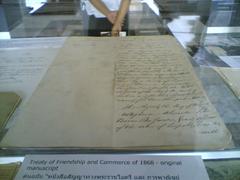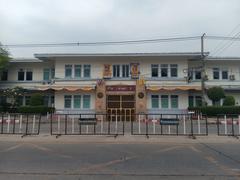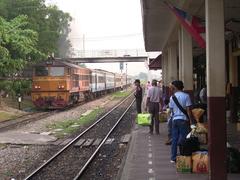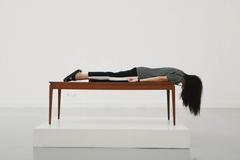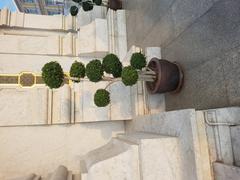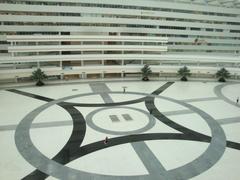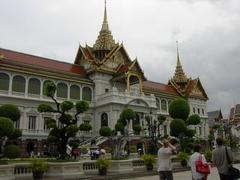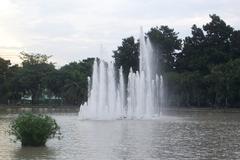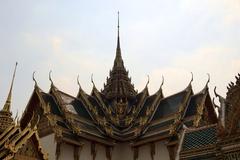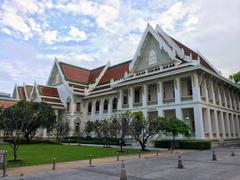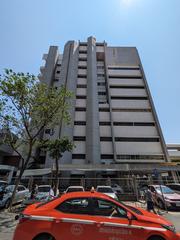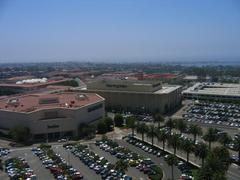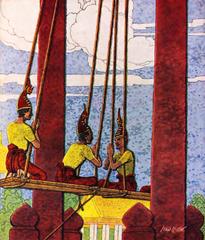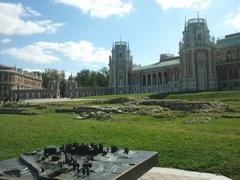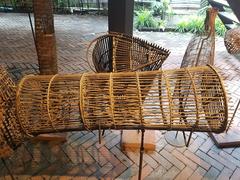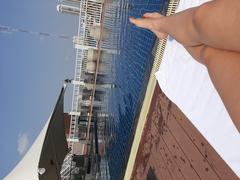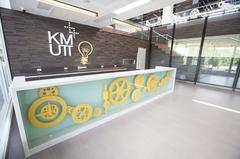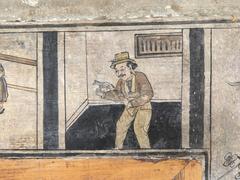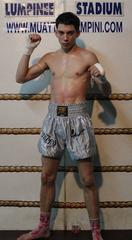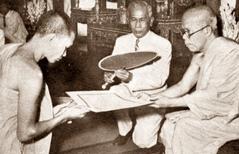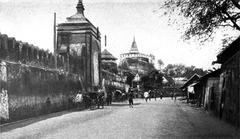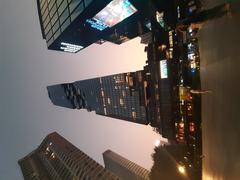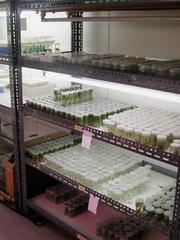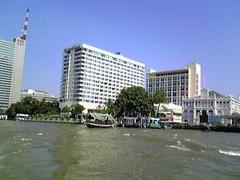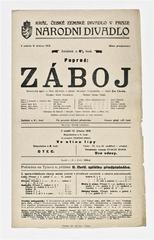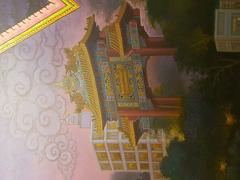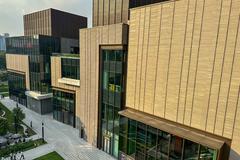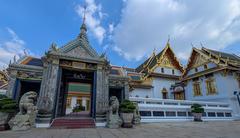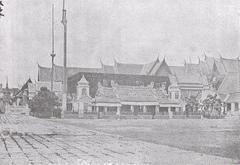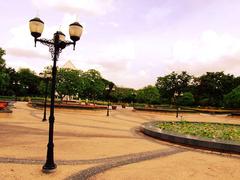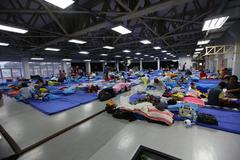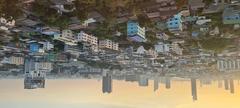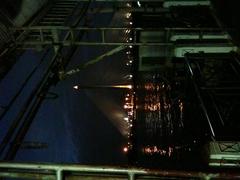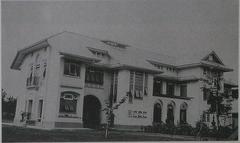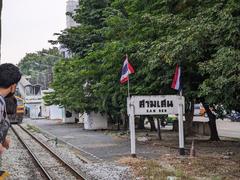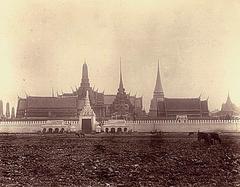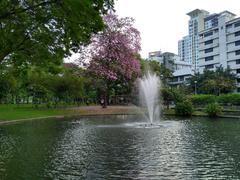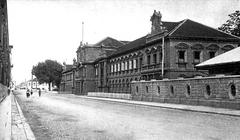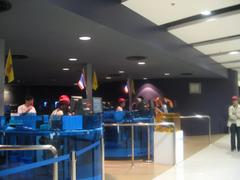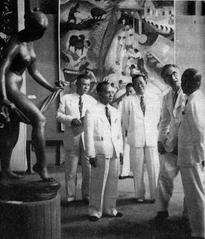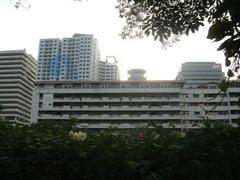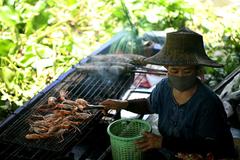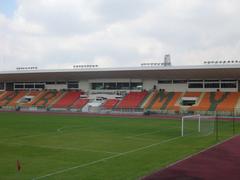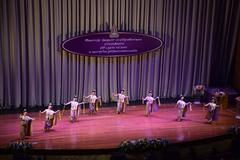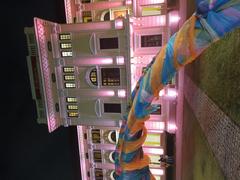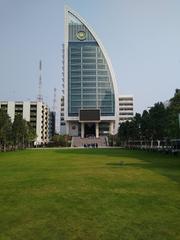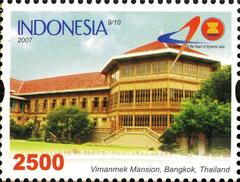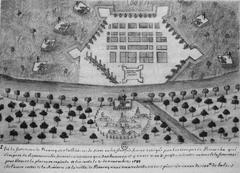Klong Prem Central Prison: Visiting Hours, Historical Significance, and Visitor Guidance
Date: 04/07/2025
Introduction
Klong Prem Central Prison, located in Bangkok’s Chatuchak District, stands as one of Thailand’s most significant and internationally recognized correctional facilities. Known colloquially as the “Bangkok Hilton,” it has a complex legacy shaped by decades of penal policy, social transformation, and human rights controversies. While the prison itself is not open for public tours, its historical relevance is preserved through nearby institutions like the Bangkok Corrections Museum and Rommaninat Park. This comprehensive guide details the prison’s history, societal impact, visitation protocols, and offers practical advice for those seeking to engage with this pivotal Bangkok historical site.
Table of Contents
- Historical Background and Evolution
- Visitor Information
- Human Rights and Controversies
- Frequently Asked Questions (FAQ)
- Conclusion
- Resources and Further Reading
Historical Background and Evolution
Wartime Origins and Early Development (1944–1960)
Established in 1944 amidst the turmoil of World War II, Klong Prem Central Prison began as a temporary incarceration facility in Lat Yao to address the rising need for detention space during Thailand’s wartime operations (Wikiwand). By 1959, it had evolved into a vocational training center aimed at rehabilitating inmates, particularly those labeled “gangsters,” blending punishment with skills development.
Institutional Expansion and Modernization (1960–1972)
Overcrowding at the original Maha Chai Road prison prompted a major relocation in 1960, moving inmates to Lat Yao. This site was formalized as Klong Prem Central Prison in 1972. The former site became the Bangkok Remand Prison and eventually Rommaninat Park, preserving elements of penal history and creating public educational spaces (Thailand Life).
Structure, Inmate Demographics, and International Dimension
Today, Klong Prem functions as a sprawling maximum-security complex, housing up to 20,000 inmates—including men, women, drug offenders, and foreign nationals from over 50 countries (Wikiwand). Key components include:
- Men’s Central Prison (Lat Yao): For male offenders serving extended sentences.
- Women’s Central Prison: Includes facilities for female inmates and death row prisoners.
- Central Correction Institution for Drug Addicts (Bambat Phiset): Specializes in drug-related offenses.
- Bangkok Special Prison: For specific inmate categories.
- Central Correctional Hospital: Provides medical care.
As of 2002, over 1,100 foreign nationals were incarcerated here, reflecting the prison’s international significance.
Overcrowding and Policy Challenges
Klong Prem has long struggled with overcrowding—cells designed for a single inmate often house five, with harsh living conditions (Reuters). The surge in incarceration rates following Thailand’s 2003 anti-drug campaign exacerbated the problem, making Thailand’s prison population one of the highest in ASEAN, especially among women.
Social and Cultural Life
Despite difficult conditions, inmates at Klong Prem develop unique social structures, forming “houses” for support and resource sharing (Coconuts Bangkok). Vocational training remains a cornerstone—for example, female prisoners learn quilting, embroidery, and massage. The “Prison World Cup,” an annual football tournament among inmates, is a notable tradition, symbolizing resilience and camaraderie (Wikiwand).
Penal Reform and Ongoing Issues
Thai authorities have acknowledged the need for reform, with discussions focused on reducing sentences for minor drug offenses and alleviating overcrowding through new facilities (Reuters). However, challenges persist, and Klong Prem remains a focal point in debates over penal policy and human rights.
Visitor Information
Public Accessibility and Visiting Hours
Klong Prem Central Prison is an active correctional facility and is not open for public tours. Visits are strictly regulated and generally restricted to family members, legal representatives, and approved visitors. The prison does not sell tickets or offer historical tours within its grounds.
Bangkok Corrections Museum and Rommaninat Park
To learn about Klong Prem’s history and Thailand’s penal system, visitors are encouraged to explore:
- Bangkok Corrections Museum: Located on the original prison site, open Tuesday to Sunday, 9:00 AM to 5:00 PM; admission fee is approximately 40 THB.
- Rommaninat Park: Open daily, 5:00 AM to 8:00 PM, with no entry fee (Thailand Life).
Tickets and Entry Requirements
- Klong Prem Central Prison: No public tickets or tours available. Family and legal visits require advance registration, valid identification, and adherence to security protocols.
- Bangkok Corrections Museum: Tickets available on-site; guided tours may be arranged through official channels or authorized operators.
Accessibility, Dress Code, and Security Procedures
- Location: The prison and related sites are accessible by MRT (Kamphaeng Phet or Hua Lamphong stations) and local bus routes. Taxis and tuk-tuks are readily available.
- Dress Code: Visitors must wear modest clothing—no shorts, sleeveless tops, or revealing outfits.
- Security: All visitors to the prison must undergo identification checks and security screening. Personal belongings are stored in lockers; contact with inmates is limited and occurs through glass partitions.
Nearby Attractions and Experiences
- Chatuchak Weekend Market: World-renowned for its size and diversity.
- Chatuchak Park: Offers relaxation and green spaces.
- Museum of Contemporary Art (MOCA): Features modern Thai art.
- Wat Traimit (Golden Buddha Temple), Chinatown Markets, Grand Postal Building: Accessible from the Corrections Museum and Rommaninat Park.
Human Rights and Controversies
Refugee Detention and International Law
Klong Prem has housed refugees and asylum seekers, including Uyghur and Rohingya men, drawing international concern. In 2025, the deportation of 40 Uyghur men to China, with five remaining in the prison, generated criticism over potential violations of the non-refoulement principle, which prohibits returning individuals to countries where they may face harm (Khaosod English; ICJ).
Inmate Conditions and Advocacy
Reports cite overcrowding, inadequate healthcare, and limited legal assistance, especially for foreign inmates. Human rights organizations and the UN have called for improved conditions, fairer asylum procedures, and adherence to international legal standards (Reuters).
Frequently Asked Questions (FAQ)
Q: Can tourists enter Klong Prem Central Prison?
A: No, the prison is not open to the public. Only approved family members and legal representatives may visit, following strict protocols.
Q: Where can I learn about the prison’s history?
A: The Bangkok Corrections Museum and Rommaninat Park provide exhibits and information about Thailand’s penal history.
Q: Is there an entrance fee for these sites?
A: The museum charges a small fee (about 40 THB); the park is free.
Q: What should I wear when visiting related sites?
A: Modest attire is required—avoid shorts, sleeveless tops, and revealing clothes.
Q: Are guided tours available?
A: Occasional guided tours are offered at the museum; check with official sources or authorized operators.
Conclusion
Klong Prem Central Prison is a powerful symbol of Thailand’s criminal justice journey, reflecting both the challenges of penal reform and the complexities of human rights in the region. While direct public access to the prison is restricted, its legacy and the lessons it offers are accessible through the Bangkok Corrections Museum, Rommaninat Park, and the vibrant Chatuchak district. Visitors and researchers are encouraged to engage with these sites to gain a deeper understanding of Thailand’s evolving approach to crime, punishment, and rehabilitation.
For ongoing updates, practical travel advice, and in-depth guides to Bangkok’s historical sites, download the Audiala app and follow our channels.
Resources and Further Reading
- Wikiwand: Klong Prem Central Prison
- Thailand Life: Rommaninat Park Bangkok
- Reuters: Inside Thailand’s Klong Prem Prison
- Khaosod English: Activists Express Concerns Over the Future of 5 Uyghurs in Thai Prison
- International Commission of Jurists
- Bangkok Tourism Official Website
- Bangkok Historical Landmarks
- Thailand Department of Corrections
- Coconuts Bangkok: Life Behind Bars
- Human Rights Watch
- BenarNews
